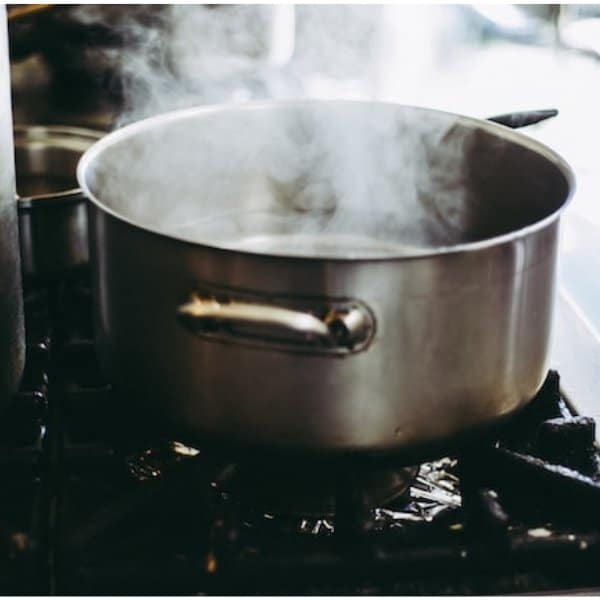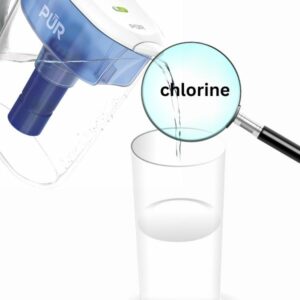What is Distilled Water?
Distilled water is pure water that has gone through a distillation process. Distillation works by boiling water and then condensing the steam into a separate container, leaving behind any impurities and minerals in the original water source. This results in a liquid primarily composed of H2O molecules without any dissolved solids.
The distillation removes all contaminants from the water, including bacteria, viruses, minerals, and chemicals. As such, distilled water is considered one of the purest forms of drinking water available. It is often used in laboratory settings to conduct experiments or create solutions that require precise measurements or uncontaminated samples.
While distilled water may be free from harmful substances found in tap or well water sources, it can also lack essential minerals like calcium and magnesium that benefit human health.
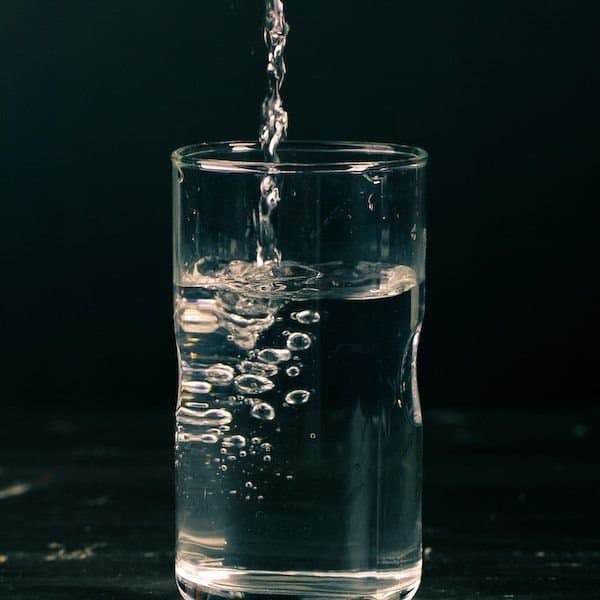
Benefits of distilled water
In the distillation process, impurities are removed through evaporation and condensation from the water. In contrast, it may seem like just another form of purified water, but distilled water actually offers unique benefits that cannot be found in other types of drinking water.
One of the main advantages of distilled water is its purity. Since all minerals and impurities are removed during the distillation process, the resulting product is 99.9% pure H2O. No additional chemicals or contaminants in your drinking water could potentially harm your health. Additionally, because distilled water is so pure, it can help to flush toxins out of your body more effectively than other types of drinking water.
What is a Water Distiller, and How Does It Work?
A water distiller is a machine that removes impurities and minerals from water by boiling it and then condensing the water vapor steam back into liquid water. The distillation process ensures the resulting water is free from contaminants such as bacteria, viruses, chemicals, and other dissolved solids. Water distillers are widely used in households, dental offices, laboratories, and industries to produce pure drinking water or for various applications.
The basic principle behind a water distiller is simple: heat the water until it evaporates and converts it into steam. The steam rises into a cooling chamber, condensing into pure liquid form. At this stage, most of the impurities are left behind in the boiling chamber, and any minerals present in the original water source are. The result is high-quality distilled water that can be used for drinking or other purposes like cooking, cleaning, or medical procedures.
Pros and Cons of Water Distillers
The distillation method has become increasingly popular among those concerned about the quality of their drinking water. However, if you want to buy a water distiller, it has both advantages and disadvantages.
Advantages of Water Distillers
One of the key advantages of using a water distiller is that it provides peace of mind knowing that the water you are drinking is pure and free from contaminants. This makes it an ideal choice for those who want to ensure the health and safety of themselves and their families.
Another advantage is cost-effectiveness – while the initial investment may seem high, over time, you will save money by not having to purchase bottled or filtered water anymore.
Disadvantages of Water Distillers
The distillation removes all impurities from the water, including beneficial minerals such as calcium and magnesium. This can lead to mineral deficiencies if someone relies solely on distilled water for hydration. Additionally, the taste of distilled water as compared to activated carbon filters fluids, may not appeal to some as it can have a flat or bland taste due to the lack of minerals.
Furthermore, water distillers take time to produce pure water compared to other methods, such as reverse osmosis or carbon filtration.
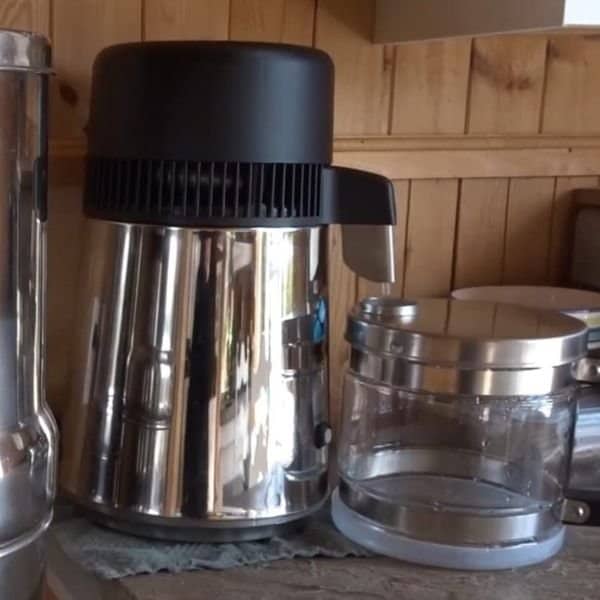
How Many Watts Does a Water Distiller Use?
The amount of watts used by a water distiller can vary depending on the size and type of the machine.
A small countertop water distiller typically uses 400-800 watts per hour, while larger models can use up to 2,000 watts. However, it’s important to note that water distillers only run for a few hours and then shut off automatically once the process is complete.
While energy usage may seem high, it’s important to consider the benefits of using distilled water, such as removing impurities and contaminants from your drinking water. Additionally, some models offer energy-saving settings that reduce their overall wattage usage during operation.
Is Making Distilled Water Cheaper Than Bottled Water?
The bottled water industry has capitalized on the demand for quality water by offering packaged water that is both clean and easy to access. However, bottled water costs can increase over time, especially for those who consume much of it. That’s where making distilled water at home can be a smart alternative.
On the other hand, making distilled water at home using a distiller machine can be much more affordable. While the initial cost of purchasing a distiller machine may be more than buying bottled water, the money saved over time can compensate for it.
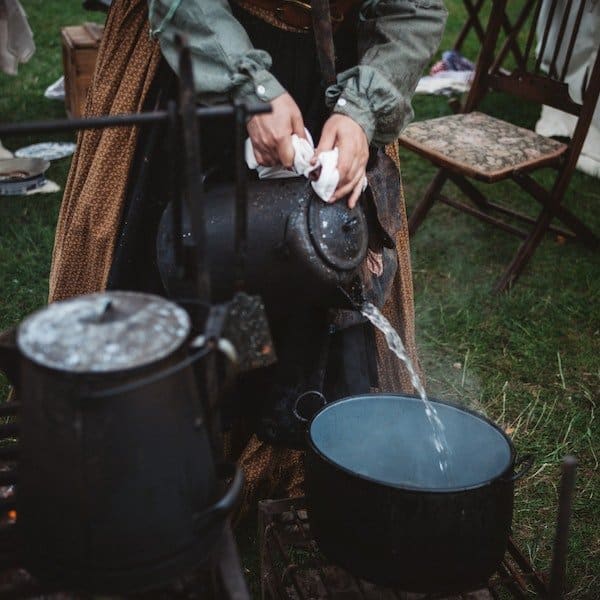
Is a Water Distiller Worth Your Money?
Investing in a high-quality water distiller can save you money in the long run compared to buying distilled water bottles. Not only is it cost-effective, but it also has numerous benefits that bottled water cannot provide. A water distiller uses a natural heating and cooling process to remove impurities from ordinary tap water. Here is a list of contaminants that a water distiller can or cannot removes.
A top-of-the-line water distiller provides clean and pure drinking water free of harmful contaminants such as chemicals, bacteria, viruses, and other pollutants. The cost of purchasing bottled distilled water may seem minimal initially, but over time, it adds up and becomes an unwanted expense. So, investing in a water distiller eliminates buying expensive bottled distilled water. Additionally, you won’t have to worry about throwing away countless plastic bottles that end up polluting our environment when you invest in a high-quality distiller unit.
Should You Get a Water Distiller?
While there are certainly many different ways to filter and clean your tap water, there are several compelling reasons why getting a water distiller is worth considering.
- Firstly, water distillers function by boiling and condensing water to remove any impurities that may be present. This process ensures that all contaminants, including bacteria, viruses, chemicals, and heavy metals, are removed from the water. Therefore, if you’re concerned about tap water quality, investing in a good-quality distiller can provide peace of mind knowing that your family is consuming safe drinking water.
- If you’re concerned about bottled water’s environmental impact, then investing in a distiller can help reduce your carbon footprint.
- Additionally, investing in a distiller can save you money in the long run if you regularly drink bottled water.
Conclusion
Making distilled water at home is much more economical than purchasing distilled water bottles. With a water distiller, you can make distilled water at home for drinking, cooking, and other uses around the house. With this process, you can distill water in large amounts and store it for future use. Making your own distilled water saves you money and helps reduce plastic waste in our environment.
